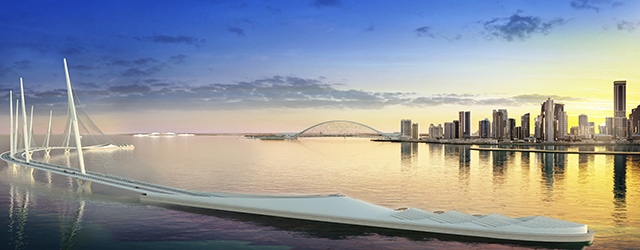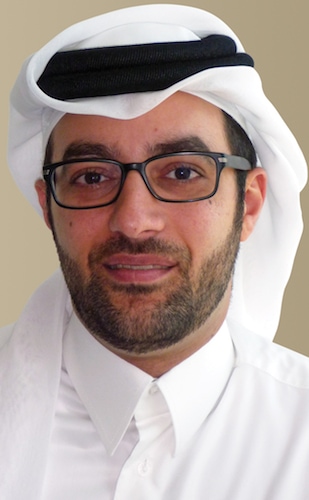Qatar | Country Report


Qatar shows no signs of slowing its investment—both internally and externally.
Shrugging off falling oil prices, Qatar is continuing to invest heavily in building up its infrastructure and likely will remain the fastest-growing economy in the region for some time to come. Analysts say it would take a much steeper and more prolonged decline in the oil market to force Qatar to change its big-spending ways.
The International Monetary Fund says Qatar’s real GDP growth should average 6% to 7% in the medium term, supported by public investments. Although that is well below its 14% GDP growth average over the past decade, the IMF says the Qatari authorities are taking steps to enhance diversification “by supporting financial deepening and private-sector development.”
Qatar’s banks remain well capitalized, liquid and profitable, the IMF wrote at the conclusion of its Article IV consultation in May. It recommended continued close monitoring of lending standards, concentration risks and cross-border activities of banks through an improved early warning system.
“As the world’s largest exporter of liquefied natural gas, Qatar has turned into an important global financial investor, labor importer and donor,” the IMF noted. The country’s per capita GDP of nearly $100,000 ranks in the top three in the world.
Jason Tuvey, Middle East economist at Capital Economics in London, says: “Qatar remains the region’s best economic performer because of its ambitious investment program. While it has weakened recently, credit growth is still strong, which reflects growing domestic demand. The government should continue to run a large budget surplus, and low oil prices are unlikely to trouble the authorities in Qatar.” The country needs an oil price of only about $65 per barrel to balance its budget, Tuvey says. Qatar is one of the least vulnerable countries in the Gulf to the fall in oil prices, he says. Bahrain, in contrast, would need an oil price of more than $135 per barrel to balance its accounts.
INFRASTRUCTURE INVESTMENTS

The Qatar government’s plan to make big investments in infrastructure is unlikely to be derailed, with or without the 2022 FIFA World Cup, Tuvey says. The status of the Middle East country as host for the global sporting event was called into question after accusations of bribery and irregularities in the bidding process were made against the country and FIFA executives. “The World Cup is small in the grand scheme of things,” Tuvey says. Qatar is spending to develop the transport infrastructure, desalination and electricity plants, schools and hospitals that it needs anyway, he says. Tuvey is confident that the World Cup will be held in Doha, the country’s capital, in 2022.
Meanwhile, Doha’s shiny, new Hamad International Airport received its first double-deck A380 aircraft in September from the Airbus facility in Germany. Qatar Airways will have four A380s in service by January and has ordered nine more. Its inaugural A380 service to London’s Heathrow began in October, with Paris and Bangkok destinations to follow.
Construction will begin next year on the $5 billion Sharq Crossing, a series of underwater tunnels and bridges that will cross Doha Bay and connect the downtown area with the new airport. US-based Fluor was hired last year as the program management consultant.
Tamim Hamad Al-Kuwari, CEO of investment bank QInvest, says: “Qatar has experienced significant growth in recent years. Money from oil and natural gas continues to be channeled into the economy, while government policies enable the private sector to prosper in the building of a modern state.”
In parallel, Al-Kuwari notes, Islamic finance continues to evolve regionally and globally. Qatar is overbanked, and its biggest financial institutions are looking abroad for growth. In the first nine months of this year, QInvest advised on $3.25 billion of sukuk transactions, representing 20% of the dollar sukuk market. This includes issues from Goldman Sachs, Kuveyt Türk, Dar Al Arkan, Türkiye Finans, Al Baraka Türk and the government of Hong Kong.
GFmag.com Data Summary: Qatar
Central Bank: Qatar Central Bank |
|||
|---|---|---|---|
|
International Reserves |
$42.1 billion |
||
|
Gross Domestic Product (GDP) |
$202.5 billion |
||
|
Real GDP Growth |
2011 |
2012 |
2013 |
|
GDP Per Capita—Current Prices |
$98,986 |
||
|
GDP—Composition By Sector* |
agriculture: |
industry: |
services: |
|
Inflation |
2011 |
2012 |
2013 |
|
Public Debt |
2011 |
2012 |
2013* |
|
Government |
Standard & Poor’s |
Moody’s |
Moody’s Outlook |
|
FDI Inflows |
2008 |
2009 |
2010 |
|
* Estimates |
|||
QInvest is currently assisting Luxembourg with its debut euro-denominated sukuk. “Now that more Islamic benchmarks have been established by sovereigns, we expect the next wave of activity to be in the corporate space,” Al-Kuwari says. “GCC [Gulf Cooperation Council] economies are showing promising signs, and we think 2015 will be another strong year for the region’s financial services sector.”
Qatar National Bank, the country’s largest lender, has an international network than comprises 26 countries. QNB aims to become the largest bank in the Middle East and Africa by 2017. It is now second in the region to South Africa’s Standard Bank in terms of assets. Last year QNB bought Société Générale’s Egyptian business for $2 billion. This September it acquired a 23.5% strategic stake in Ecobank, the leading pan-African bank, for $513 million, enabling the Qatari firm to become the largest shareholder in Togo-based Ecobank.
Meanwhile, National Bank of Kuwait agreed in October to sell its 30% stake in International Bank of Qatar to Qatari investors for $538 million. Nasser Al-Sayer, NBK’s chairman, said at the time: “We have decided to exit this partnership, as we saw limited opportunity to increase our 30% ownership in IBQ to a controlling stake. NBK’s investment in IBQ has been very successful, lasting more than 10 years, and now we are exiting at an attractive price and after achieving excellent returns over the years. We have been operating in the Qatari market for years and benefited from a decade of strong economic growth.”
The Qatari market will continue to be an important market for NBK, “as we remain focused on GCC expansions, but the emphasis is on having controlling stakes,” Al-Sayer added. He said the sale “will also strengthen our capital position to pursue our regional expansion strategy and benefit from any opportunity in Qatar or any of the other GCC markets.”
As economic growth levels out at around 6% or 7%, the risk of overheating is probably a bigger risk to the Qatari economy than a further steep drop in oil prices, economists say. While inflation could edge up to around 4% in the coming years, according to Capital Economics it is unlikely to be too troubling in an era of softer growth as the oil boom fades.



